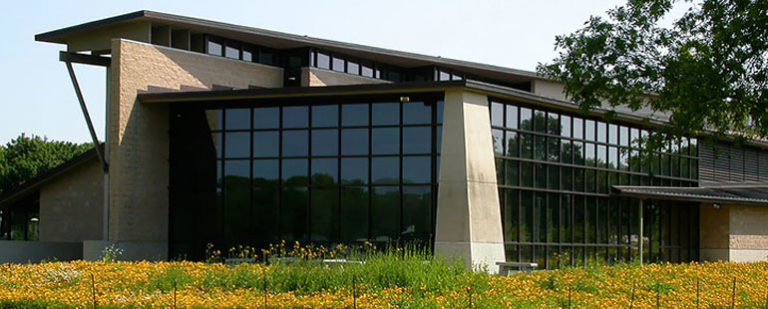
If you go to the Warner Park Community Recreation Center (WPCRC) on a weekday evening and sit down on the low wall to the left of the main entrance, you can observe the most mundane of events: commuters, returning home from work. Men carrying lunch coolers and tool bags, wearing fluorescent yellow shirts and heavy leather boots, blue-jeans stained with roofing tar or metal dust; or restaurant uniforms, smelling of ethnic food or cleaning chemicals; or the neat, semi-formal clothes of a job-seeker. Wearing masks, they stop at the front door to answer COVID-19 screening questions. They wash hands at a portable wash-station, have their temperature taken and head inside. Some, exhausted, lay down and swiftly fall asleep. Others take a shower, have a meal, work on personal projects, relax and call up their kids to hear about their day.
These are our neighbors, the men taking shelter in the WPCRC. We name them “homeless,” a single word to sum up not just their housing situation, but also their value as human beings. In reality, every man has a unique story, and unique circumstances that include a need for a place to sleep at night.
In the Letter to the Editor in the August edition of the Northside News, the writer proposed that WPCRC be reopened to its usual patrons in September. She advocated for the needs of elderly community members who use the center for fitness regimens and classes, and for the children who participate in after-school activities.
In response to her letter, I decided to visit the WPCRC and discover more about the men sheltering there. I spoke with Preston Patterson, the supervisor for Porchlight at WPCRC, trying to understand: why do people in Madison become homeless?
Everyone I spoke with cited the number-one cause of homelessness in Madison as a lack of affordable housing. Rental unit occupancy is high, and landlords have all the leverage when it comes to choosing their renters. University students occupy a significant percentage of affordable rentals during the Fall and Winter semesters. Additionally, in the past decade, the luxury rental market for high wage programmers employed at Epic Systems has driven up the price of rental units in downtown Madison. Property developers focus on building new high-rise housing, an endeavor with the highest potential profits. Adding additional affordable housing units is an afterthought, undertaken only at the insistence of City planners.
Homelessness most often begins when that lack of housing collides with challenging financial circumstances. Many men sheltering at the WPCRC have full-time jobs, but their wages are too low to pay rent. Some have well-paying jobs, but because of problems with their credit history, no one will rent to them regardless of their income. Others make child-support payments, deducted from their paychecks by the State of Wisconsin, and are left with virtually nothing to live on. For those in search of work, it is again the nature of a university town that students are a preferred source of unskilled labor. Older workers with any liabilities in their history, such as a negative credit history or a long period of unemployment, are easily passed over in favor of a younger employee, able bodied and malleable.
There are additional obstacles for people coping with disabilities that limit their ability to work in full-time or well-paying occupations. Some may never be able to earn a basic living wage. Systems that once would have provided these people with disabilities a stable housing situation have increasingly been defunded over the past three decades. While the Department of Vocational Rehabilitation, and numerous other organizations work hard to help people with disabilities to gain and retain full employment, the challenges to achieving that goal can be overwhelming. People with brain-chemistry disorders and brain-injuries often expend most of their energies trying to maintain their emotional equilibrium, managing the invisible, painful, exhausting symptoms in any way they can. While the average person is quick to understand how to interact and work with someone who is physically disabled, the stigma and fear toward those with brain illnesses is harder to overcome.
As the sun set to the west of us, sitting near Preston outside WPCRC at a distance of 8 feet, I asked him: how could we eliminate homelessness in Madison? He had three answers:
1. Madison needs more affordable housing. When there are no homes for people who are homeless to go to, nothing else they do will fix the problem.
2. Case management. Navigating all of the systems in place to help people get into permanent housing, get and keep employment, and manage any medical problems they may have, is not not an easy thing to keep track of. Case managers supervise the big picture and help their clients to succeed over the long-run.
3. Available, comprehensive medical care. And those who have disabilities of any kind, as well as those who deal with everyday illnesses and injuries, need the help of doctors, therapists, specialists, and pharmacists to help them function as well as they possibly can.
Can we help our neighbors, the men taking shelter in the WPCRC, to have access to these three things? Could we be a part of ending homelessness in our town? If we decide to view these men, and their families, as genuine, normal human beings, I believe we can. We can start by understanding that their current occupancy in the WPCRC is not a blow to our oldest and youngest neighbors, but an opportunity to take pride in helping men who have faced challenges we don’t know about to make it through the time of COVID in safety, and with our respect.
Julie Sparks